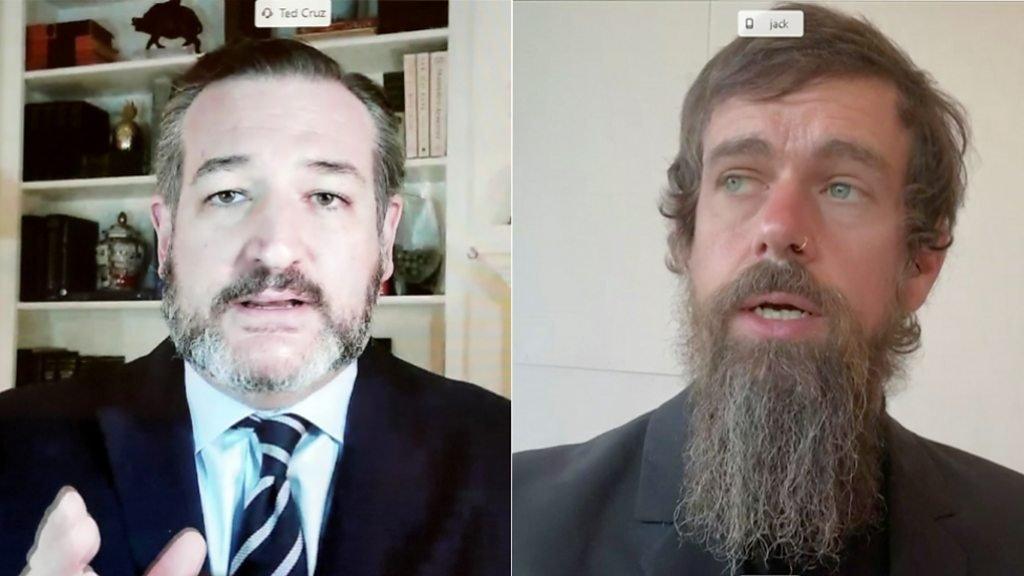Twitter co-founder Jack Dorsey steps down as chief executive
- Published
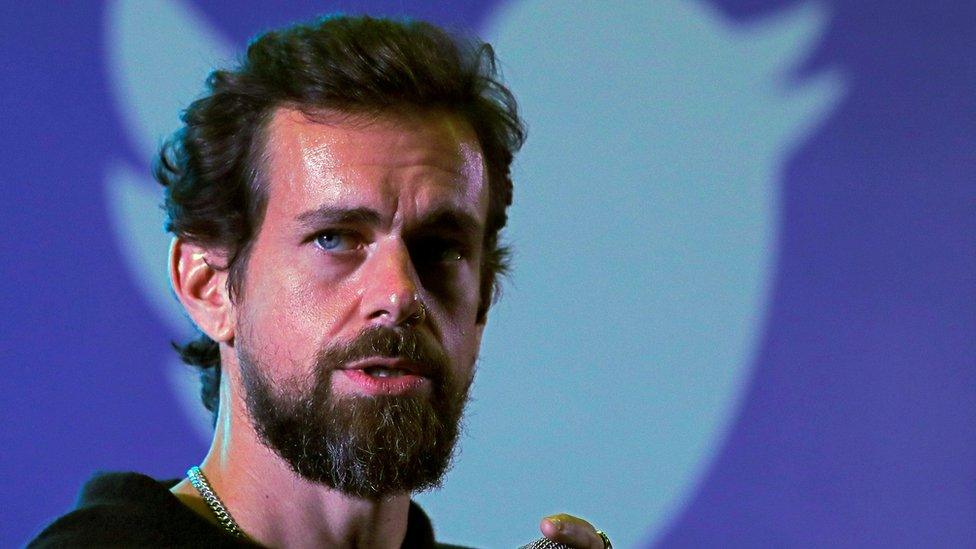
Twitter co-founder Jack Dorsey is stepping down as chief executive of the company.
He will be replaced by the current chief technical officer, Parag Agrawal, Twitter said.
Mr Dorsey, who co-founded Twitter in 2006, has been serving as chief executive of both Twitter and payment firm Square.
"It's finally time for me to leave" he wrote in a statement, saying the company was "ready to move on."
Mr Dorsey said he had "deep" trust in his replacement. "I'm deeply grateful for his skill, heart, and soul. It's his time to lead," he said.
Mr Agrawal joined Twitter in 2011, and has been the firm's head of technology since 2017.
'I love Twitter'
Mr Dorsey challenged corporate conventions with his nose-ring, long beard, and a wellness regime including yoga and eating only one meal a day.
But he came under pressure from investors, who felt Twitter was not getting the focus it needed while he was also running Square.
On Sunday, Mr Dorsey tweeted, apparently unprompted: "I love Twitter."
Allow X content?
This article contains content provided by X. We ask for your permission before anything is loaded, as they may be using cookies and other technologies. You may want to read X’s cookie policy, external and privacy policy, external before accepting. To view this content choose ‘accept and continue’.

In a separate message to the official corporate statement, Mr Dorsey tweeted, external: "Not sure anyone has heard but I resigned from Twitter."
"There's a lot of talk about the importance of a company being 'founder-led'. Ultimately I believe that's severely limiting and a single point of failure," he wrote in an attached email he sent to staff.
He added that he would leave the board after his term expires.
"Why not stay or become chair? I believe it's really important to give Parag the space he needs to lead."
Twitter's share price jumped as rumours of Mr Dorsey's departure emerged, first reported by CNBC.
But by mid-afternoon shares were trading just under their value at the end of last week.
'Godspeed, bird king'
Victoria Scholar, investment analyst at Interactive Investor, said the development had not come as a surprise to Twitter's board members "who have reportedly been preparing to say goodbye to Dorsey since last year".
The change was being seen "as a way for Twitter to turn over a new leaf and take bigger risks", she said.
Perhaps Mr Dorsey's most daring move was to ban former President Donald Trump from the platform, following the riots at the Capitol building. It provoked strong criticism from Mr Trump's supporters.
"People tend to conflate Jack Dorsey with Twitter censorship, but my sense is he's actually done what he could these past few years to keep the platform relatively open," tweeted Mike Solana, head of the private equity firm Founders Fund.
"Things will be worse without him, not better. Godspeed, bird king," he added.


In a way, Jack Dorsey typifies the Silicon Valley chief executive.
He's a multi-billionaire - and has founded two hugely successful companies - Twitter and Square.
Yet he dresses in tie-dye t-shirts and sports a beard like a wizard. He's a hippie at heart, with high ideals for how technology can change the world for good.
He genuinely believes, for example, that Bitcoin has the ability to create "world peace". And with Twitter, he certainly has changed the world.
In particular it revolutionised how politicians communicate with voters - and how news is communicated with the public.
Perhaps the best known user of Twitter was Donald Trump. The populist US president used the platform as a key way of bypassing traditional media.
The decision to remove him from the platform after the Capitol Hill riots was undoubtedly the most controversial moment of Jack Dorsey's time.
The nature of his departure is also interesting. He is extricating himself from the company, even giving up his board seat.
That's very different to say, Jeff Bezos, who retains much influence at Amazon despite stepping down as boss earlier this year.
Mr Dorsey claims this is his decision. But at a multi-billion dollar company, there could well be more at play behind the scenes.
He is in his mid-40s, and still has lofty ambitions to change the world. With his track record, he may well do so again.

'Visionary leadership'
The 45-year-old co-founded the company with Biz Stone, Evan Williams and Noah Glass in 2006.
Mr Dorsey has, however, become the face of the company, having sent the earliest tweets on the service and due to his long tenure as chief executive.
He left the role of Twitter chief in 2008 and founded the digital payments app Square, which has also grown into a multi-billion dollar company.
However, he was brought back to helm Twitter in 2015 after then-chief executive Dick Costolo stepped down.
The role has seen him appear in televised inquiries before US politicians to be quizzed about his platform and its potential role in the spread of disinformation - something Twitter has been repeatedly accused of acting too slowly on in recent years.
Like other social media sites it has also been accused of political bias on both sides of the US political divide.
"Who put you in charge of what the media are allowed to report?": Twitter's Jack Dorsey is quizzed by Senator Ted Cruz
Calls for his departure came in 2020 from Elliott management, an investment firm which owns a significant amount of Twitter's shares. The firm reportedly felt that a full-time chief executive with only one company to run would be better for Twitter's fortunes.
But the two sides later came to an agreement which saw Mr Dorsey remain in his post.
Reacting to the news of Mr Dorsey's resignation, Elliott said the new management team were "the right leaders for Twitter at this pivotal moment for the company".
The change in leadership comes alongside several other changes to Twitter's board, external, including the appointment of Bret Taylor, an existing Twitter board member and veteran of Google and Salesforce, as the new chairman.
"I want to thank Jack for his visionary leadership and unrelenting dedication to Twitter since its founding," Mr Taylor said.
"Jack returned to Twitter and turned the Company around at the most critical time. The progress since then has been nothing short of incredible.
"Jack has given the world something invaluable and we will continue to carry it forward."
Related topics
- Published30 November 2021
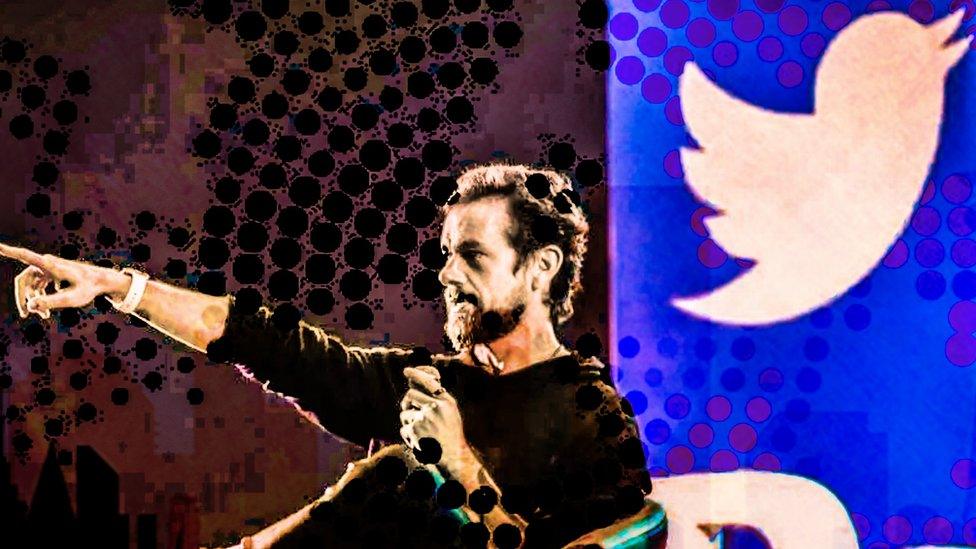
- Published6 March 2021
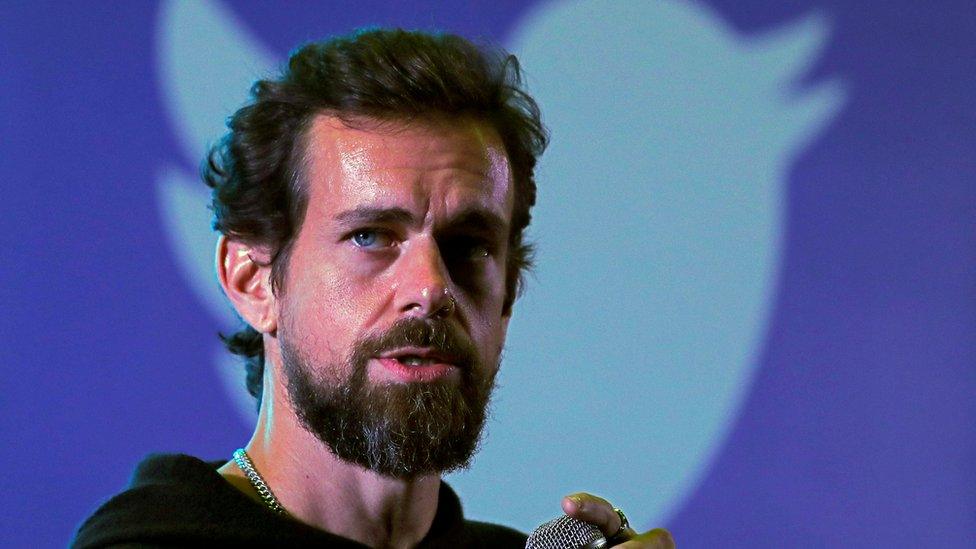
- Published23 March 2021
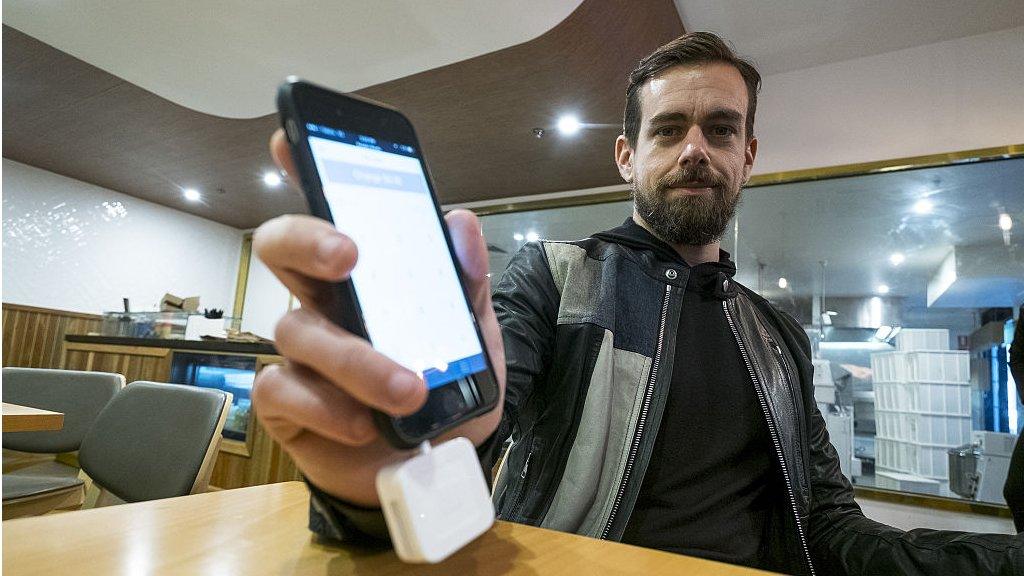
- Published28 June 2021

- Published2 August 2021
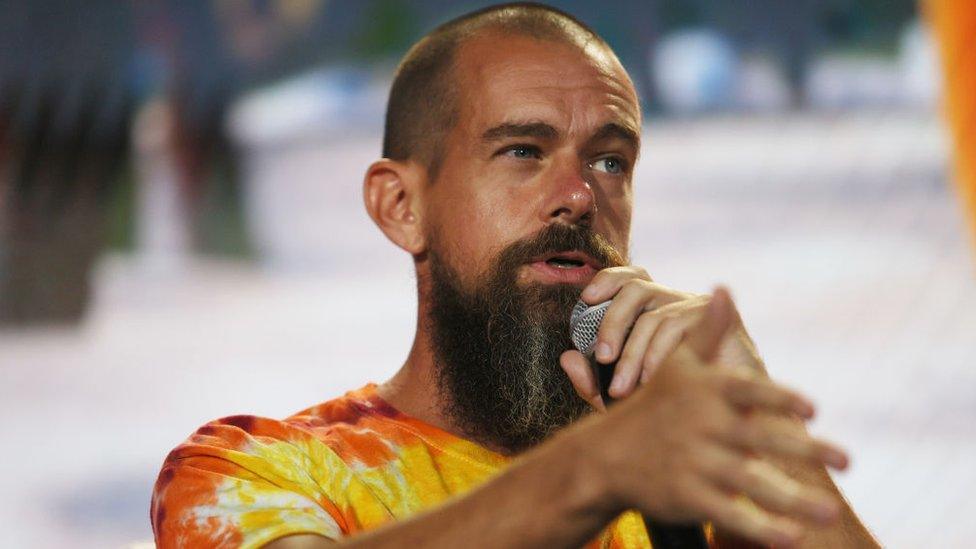
- Published25 March 2021

- Published31 August 2019
- Published28 October 2020
